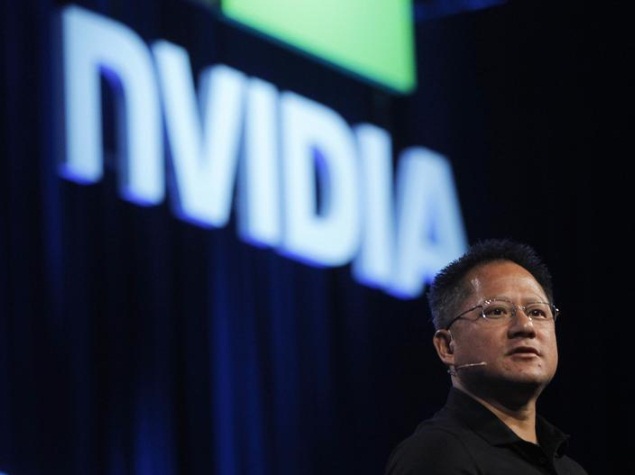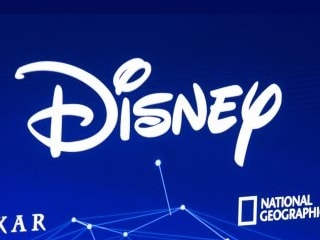- Home
- Laptops
- Laptops News
- Nvidia GeForce GTX Titan Z $2,999 graphics card with dual Kepler GPUs launched
Nvidia GeForce GTX Titan Z $2,999 graphics card with dual Kepler GPUs launched

With the personal computer industry losing steam and the chipmaker's move into mobile facing relentless competition, Nvidia is heavily promoting its graphics technology for a wider range of applications, including cars and data centers.
At the company's annual graphics technology conference in San Jose, Huang wowed close to 3,000 attendees with souped up chips for machine learning and a self-driving Audi, powered by an Nvidia processor, that drove onto the stage during his presentation.
Huang announced a new version of Nvidia's high-end Titan graphics card, its top of the line offering for die-hard PC gamers. The new Titan Z, which will sell for $2,999, boasts two Kepler graphics processors and follows the previous Titan chip that sold for about $1,000.
He showed the new Titan device intricately simulating the natural interplay between a solid block swinging from an elastic and smoke particles moving around it, all adhering to the laws of physics.
"If you're in desperate need of a supercomputer that you need to fit under your desk, we have just the card for you," Jen-Hsun said.
Huang also announced an upcoming graphics processor unit, codenamed after French mathematician Blaise Pascal, with memory chips stacked one on top of each other to allow data to move faster and more efficiently.
Nvidia has been trying to push into tablets and smartphones but it has struggled to stake out market share due to stiff competition from larger Qualcomm Inc.
Now, the company is increasingly marketing its Tegra line of mobile chips as ideal for powering entertainment and navigation systems in cars. In January, Nvidia said it was broadening its relationship with Audi, which plans to use the upcoming Tegra K1 chip in more of its cars.
(Also see: Nvidia Tegra K1 mobile SoC with 192 core Kepler GPU unveiled at CES 2014)
The Santa Clara, California company is also pushing for its graphics chip technology to be adopted in data centers providing web-based processing power to enterprise customers.
Huang said cloud-computing company VMWare would incorporate Nvidia's technology in its virtualization software, which helps companies save on server and storage costs.
Nvidia recently announced that its Tegra mobile chip and LTE modem would be used in a new version of Microsoft's Surface tablet. A previous version of the Surface using Nvidia chips failed to gain traction with tablets shoppers.
© Thomson Reuters 2014
Catch the latest from the Consumer Electronics Show on Gadgets 360, at our CES 2026 hub.
Related Stories
- Samsung Galaxy Unpacked 2025
- ChatGPT
- Redmi Note 14 Pro+
- iPhone 16
- Apple Vision Pro
- Oneplus 12
- OnePlus Nord CE 3 Lite 5G
- iPhone 13
- Xiaomi 14 Pro
- Oppo Find N3
- Tecno Spark Go (2023)
- Realme V30
- Best Phones Under 25000
- Samsung Galaxy S24 Series
- Cryptocurrency
- iQoo 12
- Samsung Galaxy S24 Ultra
- Giottus
- Samsung Galaxy Z Flip 5
- Apple 'Scary Fast'
- Housefull 5
- GoPro Hero 12 Black Review
- Invincible Season 2
- JioGlass
- HD Ready TV
- Laptop Under 50000
- Smartwatch Under 10000
- Latest Mobile Phones
- Compare Phones
- Vivo Y500i
- OnePlus Turbo 6V
- OnePlus Turbo 6
- Itel Zeno 20 Max
- OPPO Reno 15 Pro Mini 5G
- Poco M8 Pro 5G
- Motorola Signature
- Vivo Y50e 5G
- Lenovo Yoga Slim 7x (2025)
- Lenovo Yoga Slim 7a
- Realme Pad 3
- OPPO Pad Air 5
- Xiaomi Watch 5
- Huawei Watch 10th Anniversary Edition
- Acerpure Nitro Z Series 100-inch QLED TV
- Samsung 43 Inch LED Ultra HD (4K) Smart TV (UA43UE81AFULXL)
- Asus ROG Ally
- Nintendo Switch Lite
- Haier 1.6 Ton 5 Star Inverter Split AC (HSU19G-MZAID5BN-INV)
- Haier 1.6 Ton 5 Star Inverter Split AC (HSU19G-MZAIM5BN-INV)

















